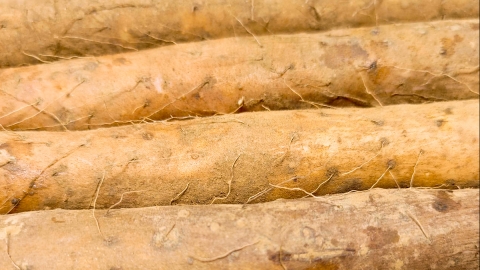What is the best combination for Astragalus (Huang Qi)?
Generally speaking, there is no definitive statement regarding the "best combination with Astragalus (Huang Qi)." Astragalus can be combined with herbs such as Chinese yam (Dioscorea opposita, Shan Yao), white atractylodes (Atractylodes macrocephala, Bai Zhu), poria (Poria cocos, Fu Ling), siler (Saposhnikovia divaricata, Fang Feng), and wolfberry (Lycium barbarum, Gou Qi). If you intend to use any of these herbs, it is recommended to consult a physician first. Detailed explanations are as follows:

1. Chinese Yam (Shan Yao)
Chinese yam has a neutral nature and a sweet taste, and functions to strengthen the spleen and stomach, nourish the kidneys, and benefit essence. When Astragalus is used together with Chinese yam, it can both replenish qi and strengthen the spleen, showing good improvement effects on symptoms such as spleen and stomach weakness, indigestion, and chronic diarrhea.
2. White Atractylodes (Bai Zhu)
White atractylodes strengthens the spleen, dries dampness, stops perspiration, and stabilizes pregnancy. When used together with Astragalus, it enhances the effects of invigorating qi and strengthening the spleen, and is particularly effective for regulating conditions such as spleen weakness, poor appetite, and easy fatigue.
3. Poria (Fu Ling)
Poria promotes diuresis, resolves dampness, strengthens the spleen, and calms the mind. When used together with Astragalus in soups or teas, it enhances spleen function, aids digestion, reduces internal dampness, and is especially suitable for individuals with spleen deficiency and excessive dampness or edema.
4. Siler (Fang Feng)
Siler dispels wind, resolves exterior syndromes, overcomes dampness, and relieves pain. When combined with Astragalus, it enhances the effects of invigorating qi, consolidating the exterior, and stopping perspiration, thus improving the body's resistance. It is suitable for individuals experiencing spontaneous sweating, night sweats, or susceptibility to colds.
5. Wolfberry (Gou Qi)
Wolfberry nourishes the liver and kidneys, and benefits vision. When combined with Astragalus, it nourishes the liver and kidneys, improves symptoms such as soreness and weakness of the waist and knees, dizziness, and tinnitus, and is suitable for individuals with liver and kidney yin deficiency, vision deterioration, and dizziness.
When consuming Astragalus, follow the principle of moderation and pay attention to bodily reactions. If discomfort occurs, seek medical attention promptly.






